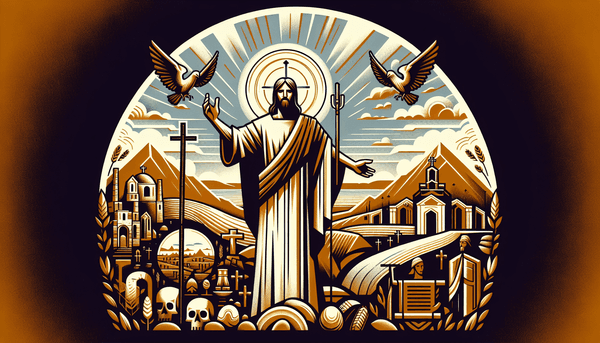The Lord's Protection as a Shepherd
The Lord's protection is multifaceted and sacrificial, mirroring the shepherd's unwavering commitment to his flock. As Jesus declared, \"I am the good shepherd. The good shepherd lays down his life for the sheep\" (John 10:11), we are reminded of the profound depth of His protective love. This guardianship is all-encompassing and eternal, as affirmed in Psalm 121:7-8, promising that the Lord will keep us from all harm and watch over our lives forevermore. Such protection is not passive but actively involves leading us to places of restoration and defending us against life's adversities. To further explore the nature of the divine and its reflection in our lives, consider reading our related blog post that delves into God's holiness and the biblical teachings on personal conduct (Psalm 23:5-6).
Personal Reflection on the Lord as My Shepherd
To regard the Lord as my shepherd is to acknowledge His personal involvement in my life's journey. It is to trust in His provision, to be comforted by His rod and staff, and to sense His companionship along every path. The Lord shepherds each of us with an intimate care that leaves no need unmet, and this relationship with Him infuses our lives with purpose and direction (Psalm 100:3, Isaiah 53:6). As we recognize the ways He cares for us, our hearts are filled with gratitude and a profound sense of belonging.
Historical Context of the Bible
It is a common question to ponder the age of the Bible in relation to the history of Christianity. While Christianity is approximately 2000 years old, the Bible itself contains texts that predate this period. The Old Testament, for instance, includes books that are believed to have been written more than 3000 years ago, revealing the ancient origins of the scriptures. The Bible, therefore, is a compilation of writings that spans a significant period of history, reflecting the diverse experiences and revelations of God's people over millennia (2 Timothy 3:16-17, Exodus 24:4).
FAQ
Q: What does it mean for the Lord to be my shepherd?
A: To have the Lord as your shepherd means acknowledging His guidance, care, and provision in your life. It signifies a relationship where you trust in His ability to lead you to spiritual rest and nourishment, to comfort you in times of trouble, and to protect you from harm.
Q: What does 'green pastures' and 'still waters' mean in Psalm 23?
A: In Psalm 23, 'green pastures' symbolize a place of abundant provision and nourishment, while 'still waters' represent peace and restoration for the soul. They are metaphors for the spiritual sustenance and tranquility that the Lord provides to those who follow Him.
Q: In what ways does the Lord protect His people as a shepherd?
A: The Lord protects His people by providing for their needs, leading them to places of safety and rest, comforting them in times of distress, and guarding them against spiritual and physical dangers. This protection is likened to a shepherd's vigilant care for his flock.
Q: If Christianity is 2000 years old, why is the Bible considered to be about 3000 years old?
A: The Bible is considered to be about 3000 years old because it contains texts, particularly from the Old Testament, that were written long before the birth of Christ and the beginning of Christianity. These ancient texts provide a historical foundation for the Christian faith.






